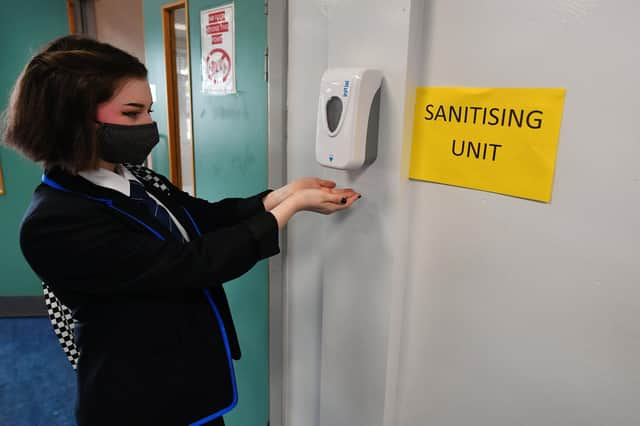Coronavirus: Why Scotland's school children are among the world's lucky ones – Professor Devi Sridhar


With children walking happily to school, and some daily routine being brought back for families in Scotland, it’s easy to forget the larger context of the Covid-19 pandemic. A global educational emergency is taking place around the world with up to 1.6 billion children out of school.
Many of these children, especially those in poorer countries, will be forced to work given the economic impacts of the virus, and never be able to return to the schooling system again.
Advertisement
Hide AdAdvertisement
Hide AdEven before Covid-19, more than 50 per cent of children could not read at a basic level even by the age of 10.
Child marriage is also predicted to increase and result in an extra 13 million child marriages in the coming decade. When schools shut in Sierra Leone during the 2014 Ebola epidemic, the number of girls aged 15 to 19 becoming pregnant nearly doubled and rose to 65 per cent. Most of these girls never went back to school.
Some 370 million children have lost their free school meal, often their main source of calorie intake, and will go to bed hungry for months.
Return to online education in Seoul
And while everyone can agree that getting children back into schools is a priority, this has proven challenging to governments across the world. Aside from New Zealand, Australia and other islands which have managed to largely eliminate the virus, even well-performing countries like South Korea and Germany have struggled to keep schools open.
After 150 students and 43 school staff become infected with Covid-19 over two weeks, Seoul schools closed in-person learning and moved back online until 11 September. Less than two weeks after opening, 41 schools in Berlin reported having cases within their community, either pupils or teachers.
In places with rampant community transmission, like in most places in the United States, a survey of parents showed that less than one in seven children are attending in-person schooling until early 2021.
While schools have not proven to be ‘super-spreading’ locations like bars and clubs, they also are not completely immune or in a protective bubble. They are part of a community. A Public Health England report on English schools in June noted that the higher the local prevalence of the virus was, the more likely there were to be outbreaks.
Few problems so far
Keeping schools open requires a first line of defence to prevent the virus ever entering the school, using a broad strategy of community suppression, mitigating transmission within school settings through hand-washing, ventilation, outside learning, face coverings as needed, distancing among teachers and between teachers and pupils, and finally responding quickly when cases emerge through a robust test-trace-and-isolate scheme (called ‘Test and Protect’ in Scotland).
Advertisement
Hide AdAdvertisement
Hide AdWhile schools in Scotland have seen dozens of cases emerging over the past two weeks, it’s worth remembering that the vast majority of children have returned full-time and have not seen problems, so far. There are around 2,500 schools and 2,500 early learning centres or nurseries.
So yes there will be cases emerging, and clusters like in Dundee, but it is also worth keeping perspective on the large denominator of total schools and nurseries operating. And while parents might grumble about provision of cold lunches instead of hot meals, in the broader picture of the world, children living in Scotland are some of the lucky ones to be getting back into school and getting back into their daily routine of learning and play.
Even getting to the stage to re-open schools is a huge step forward and one that will be challenging to maintain with such an infectious virus.
Devi Sridhar is professor of global public health at Edinburgh University
A message from the Editor:
Thank you for reading this article on our website. While I have your attention, I also have an important request to make of you.
With the coronavirus lockdown having a major impact on many of our advertisers - and consequently the revenue we receive - we are more reliant than ever on you taking out a digital subscription.
Subscribe to scotsman.com and enjoy unlimited access to Scottish news and information online and on our app. With a digital subscription, you can read more than 5 articles, see fewer ads, enjoy faster load times, and get access to exclusive newsletters and content. Visit www.scotsman.com/subscriptions now to sign up.
Our journalism costs money and we rely on advertising, print and digital revenues to help to support them. By supporting us, we are able to support you in providing trusted, fact-checked content for this website.
Joy Yates
Editorial Director
Comments
Want to join the conversation? Please or to comment on this article.